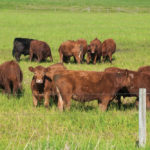
Risk and reward
Are injury rates in Canadian agriculture driven by farm culture?

Conference digs into safety, farm culture on Canadian farms
"People say, ‘I do things safely,’ but don’t actually do things to support that. We’ve got to figure that out.”

For the birds
Ranchers and prairie grassland birds have something in common: they’re both endangered species

Western Manitoba community pastures named as key habitat for grassland bird species
The Ellice-Archie Spy Hill community pastures are now officially an Important Bird Area (IBA)

Conservationists should support beef sector
Land use and habitat index values for beef cattle production and other agricultural areas in Canada
Will you serve on the board?
Manitoba Agriculture is offering two seminars March 6 and March 7 to help build skills for effective leadership

More markets, more vendors, more challenges
Increasing visitor traffic to farmers’ markets would help, says Jeff Veenstra, Wild Earth Farms owner

Direct Farm Manitoba hopes for better connection
2016 census revealed a vibrant direct-marketing sector in Manitoba, but that hasn’t translated into memberships in the organization

The farmers’ market goes high tech
A small group of local food producers are taking their marketing efforts online

Helping hands: pilot immigration program targets rural Canada
The Rural and Northern Immigration Pilot Program matches immigrants to jobs and could help agricultural recruiters fill vacancies


